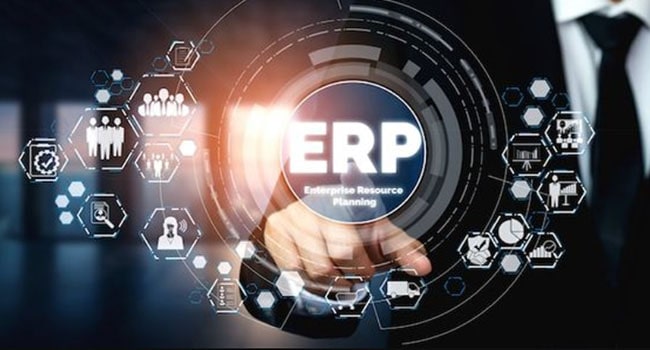Exploring the Top ERP Systems: Streamlining Business Operations for Success
In the ever-evolving landscape of modern business, efficiency and integration are paramount. Enterprises worldwide are turning to Enterprise Resource Planning (ERP) systems to streamline their operations, enhance productivity, and drive growth. With a myriad of options available, it can be daunting to select the right ERP solution for your organization. In this article, we’ll explore some of the top ERP systems on the market, highlighting their key features and benefits.

What is an ERP System?
Before diving into the specifics, let’s briefly understand what an ERP system is. ERP refers to a suite of integrated applications that automate and manage core business processes such as finance, HR, supply chain, manufacturing, and more. By centralizing data and processes, ERP systems provide real-time insights, improve collaboration, and enable informed decision-making across departments.
1. SAP S/4HANA
SAP S/4HANA is a leading ERP solution renowned for its robust functionality and scalability. Built on the SAP HANA in-memory database, it offers real-time analytics, predictive capabilities, and a simplified user interface. Key features include:
- Advanced Analytics: Leverage embedded analytics and machine learning to uncover actionable insights and drive intelligent decision-making.
- Simplified Processes: Streamline operations with automated workflows, intelligent automation, and a unified data model.
- Cloud or On-Premise Deployment: Choose between cloud-based or on-premise deployment options based on your organization’s requirements.
- Industry-Specific Solutions: Benefit from industry-specific functionalities tailored to sectors such as manufacturing, retail, healthcare, and more.
2. Oracle ERP Cloud
Oracle ERP Cloud is a comprehensive ERP solution that empowers organizations with agile business processes and real-time insights. Leveraging emerging technologies such as AI and machine learning, Oracle ERP Cloud offers:
- Scalability and Flexibility: Easily adapt to changing business needs with flexible deployment options and scalable architecture.
- Integrated Suite: Seamlessly integrate financial management, procurement, project management, and other modules for end-to-end visibility.
- Predictive Analytics: Anticipate trends, identify risks, and optimize performance with embedded analytics and predictive capabilities.
- Global Compliance: Ensure compliance with local regulations and global standards across regions with built-in regulatory features.
3. Microsoft Dynamics 365
Microsoft Dynamics 365 is a versatile ERP solution that combines ERP and CRM capabilities to drive business growth and customer engagement. Key features include:
- Unified Platform: Integrate ERP, CRM, and other business applications within a single platform for a holistic view of operations.
- Intelligent Insights: Harness the power of AI and analytics to gain actionable insights, enhance decision-making, and personalize customer experiences.
- Scalable and Modular: Start with the modules you need and scale up as your business grows, with the flexibility to add new functionalities seamlessly.
- Integration with Microsoft Ecosystem: Benefit from seamless integration with Microsoft Office 365, Power Platform, and other productivity tools for enhanced collaboration and productivity.
4. Infor CloudSuite:
Infor CloudSuite is a robust ERP solution designed to meet the specific needs of various industries. With industry-specific functionalities and flexible deployment options, Infor CloudSuite offers:
- Industry Specialization: Tailored solutions for industries such as manufacturing, distribution, healthcare, and hospitality.
- User Experience: Intuitive user interface and role-based access ensure ease of use and productivity.
- Scalability: Easily scale up or down to accommodate changing business requirements.
- Global Reach: Supports multi-site, multi-country, and multi-language deployments, making it suitable for global enterprises.
5. Epicor ERP:
Epicor ERP is a comprehensive solution designed for manufacturers, distributors, and service organizations. With a focus on usability and industry-specific functionalities, Epicor ERP offers:
- Industry Focus: Tailored solutions for industries such as manufacturing, distribution, retail, and automotive.
- Mobility: Mobile access allows users to stay connected and productive from anywhere, anytime.
- Cloud or On-Premise Deployment: Offers flexibility with both cloud-based and on-premise deployment options.
- Business Intelligence: Built-in analytics and reporting tools provide actionable insights for informed decision-making.
Conclusion
Choosing the right ERP system is a critical decision that can significantly impact your organization’s efficiency, agility, and competitiveness. Whether you opt for SAP S/4HANA, Oracle ERP Cloud, Microsoft Dynamics 365, or another solution, it’s essential to evaluate your business requirements, scalability needs, and long-term goals.
By investing in a top-tier ERP system, you can streamline processes, improve decision-making, and propel your business towards sustainable growth and success in today’s dynamic marketplace.